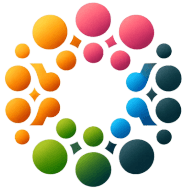7 Effective Ways to Address Unconscious Bias in Hiring and Promotion
Discover effective strategies for mitigating unconscious bias in the workplace, as this article unveils a comprehensive approach backed by experts. Learn how to blend emotional intelligence with structured processes to refine hiring and promotion practices. The insights shared here are distilled from the wisdom of seasoned professionals who have successfully navigated the complexities of diversity and inclusion.
- Integrate Emotional Intelligence Training
- Diversify Decision-Makers
- Implement Competency-Based Evaluation Criteria
- Use Structured Interviews With Rubrics
- Apply Pre-Defined Hiring Rubrics
- Adopt Blind Recruitment Techniques
- Utilize Data-Driven Recruitment Process
Integrate Emotional Intelligence Training
One effective way to address unconscious bias in hiring and promotion is by integrating emotional intelligence training into organizational development. Emotional intelligence is crucial for building a workplace where listening deeply and communicating effectively become second nature, which can counteract unconscious biases. At Give River, we've seen how fostering emotional intelligence can lead to a more inclusive environment, improving team harmony and decision-making.
I co-founded Give River, where we've developed tools to improve emotional intelligence and mindfulness in the workplace. For instance, our platform enables continuous feedback loops, providing real-time insights into team dynamics and fostering a culture of open communication and collaboration. This environment supports the reduction of bias by ensuring everyone feels heard and valued, leading to fairer hiring and promotion practices.
Concrete data from client teams using our emotional intelligence modules shows improved engagement and reduced absenteeism, backing the correlation between emotional awareness and unbiased decision-making. Addressing unconscious biases in hiring isn't just about altering processes; it's about cultivating the right cultural mindset where each individual feels recognized and appreciated as a whole person, not just an employee.

Diversify Decision-Makers
One simple and effective way to address unconscious bias in hiring and promotion processes is to diversify the decision-makers. When possible, ensure decision-makers reflect the candidate pool. This reduces reliance on "like-me" biases that arise in hiring and promotion practices.

Implement Competency-Based Evaluation Criteria
One effective way to address unconscious bias in hiring and promotion is by implementing structured, competency-based evaluation criteria. In my experience, clearly defining the skills, qualifications, and attributes required for a role, and scoring candidates against those criteria significantly reduces the influence of personal biases. For example, at The Alignment Studio, when expanding our team of multidisciplinary professionals, we introduced a blind screening process for initial stages. We removed identifiers like name, gender, and age from resumes to ensure candidates were assessed solely on their qualifications and experience. This method allowed us to focus on measurable competencies, such as expertise in musculoskeletal health or Pilates instruction, and it led to a more diverse and highly skilled team.
My 30 years in the healthcare field have taught me that diverse teams not only foster innovation but also better reflect and serve a varied clientele. By applying my knowledge of organizational dynamics and utilizing tools like structured interviews and anonymized assessments, we achieved a more inclusive hiring process. In one instance, this approach helped us discover an exceptional physical therapist with a unique background in both elite sports and pediatric care, someone who might not have stood out in a less structured system. This has positively impacted our clinic's ability to meet diverse patient needs and has reinforced the value of deliberate strategies to combat unconscious bias.

Use Structured Interviews With Rubrics
As the Founder and CEO of Nerdigital.com, I believe one of the most effective ways to address unconscious bias in hiring and promotion processes is by integrating structured frameworks and objective tools into decision-making. Bias often thrives in ambiguity, so creating systems that prioritize fairness and transparency is key.
A Specific Practice That Works
One practice we've implemented is the use of structured interviews with standardized scoring rubrics. Every candidate for a role is asked the same set of questions, and their responses are evaluated against predefined criteria. This eliminates subjective impressions that can creep into the process and ensures candidates are assessed on their skills and qualifications, not on factors unrelated to their potential.
For promotions, we rely on clear, measurable performance metrics rather than subjective judgments. For example, we created an internal "growth dashboard" that tracks contributions, leadership behaviors, and project outcomes. This transparency reduces the influence of favoritism or unconscious preferences and makes the decision process data-driven.
A Tool That's Been Successful
We've also adopted tools like blind resume review platforms, which anonymize details like names, schools, and even locations during the initial screening process. This ensures that candidates are evaluated solely on their achievements and qualifications, minimizing the impact of stereotypes or preconceived notions.
Why This Matters
These practices aren't just about fairness-they're about finding the best people for the job. By reducing bias, we've expanded the diversity of perspectives on our team, which directly contributes to innovation and better decision-making. One specific example: after implementing structured processes, we saw a noticeable increase in hires from underrepresented groups in technical roles, which has strengthened our team culture and improved our products.
Addressing unconscious bias isn't a one-time effort; it's a commitment to continually improving processes and tools. My advice to others is simple: focus on structure and accountability. When everyone has a fair chance to showcase their potential, you'll not only build a stronger team but also foster an environment where talent can truly thrive.

Apply Pre-Defined Hiring Rubrics
At Carepatron, we've seen how structured processes help ensure fairness and reduce the influence of unconscious biases.
For example, during hiring, we use pre-defined rubrics that evaluate candidates based on skills, experience, and cultural alignment with our values. Each interviewer evaluates candidates independently based on these criteria before discussing as a group. This ensures decisions are rooted in clear, consistent standards rather than gut feelings.
In promotions, we apply a similar approach by evaluating team members based on measurable contributions, skills, and alignment with organizational goals. We also encourage managers to actively seek feedback from diverse perspectives to provide a well-rounded view of a team member's impact.
These practices ensure a more equitable process and help build a culture of inclusion and fairness, where everyone feels they have an equal opportunity to grow and succeed based on their contributions and potential.

Adopt Blind Recruitment Techniques
One way to deal with unconscious bias is to implement blind recruitment. It involves removing personal details, like names, gender, ethnicity, and even educational background, from the initial stages of the hiring process. The goal is to focus purely on skills, experience, and qualifications, which helps reduce bias that might otherwise influence decisions unconsciously.
A specific tool I've seen work well in this area is Applied, a recruitment platform that uses blind hiring techniques. It anonymizes applications, allowing employers to evaluate candidates based solely on their ability to perform tasks relevant to the role. This approach has proven successful in increasing diversity because it makes sure that candidates are assessed on their potential, rather than factors like gender or ethnicity that can unintentionally impact hiring decisions. It's a straightforward but powerful way to level the playing field and promote a more inclusive hiring process.

Utilize Data-Driven Recruitment Process
A standardized, data-driven recruitment process is one of the most effective tools for addressing unconscious bias in hiring. The more subjective a hiring process, the more opportunities there are for the bias of the hiring team to impact the process-often without them even realizing that it's happening, which makes it very difficult to address. Utilizing a standard review based on data ensures that candidates are being compared on equal footing so that you can be confident you're truly identifying the right individual for the role.
The process begins by using data analytics to identify the specific skills, traits, or experiences that are strong predictors of success in a given role. With these insights, you can create standardized metrics to evaluate candidates, emphasizing measurable skills and past achievements. This can be supplemented with structured interview questions and skill assessments designed to align with the identified success indicators. By anchoring evaluations to job-relevant criteria, hiring teams are better equipped to focus on what truly matters, minimizing the influence of unconscious bias.
Ultimately, addressing unconscious bias requires a commitment to consistency and data-driven decision-making. Employers who adopt these practices not only promote fairness but also enhance their ability to identify and retain top talent.


